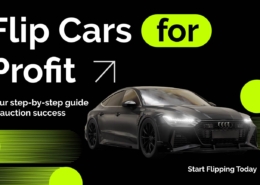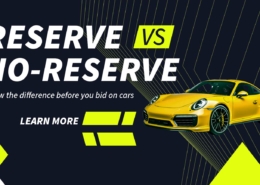 https://auction.ridesafely.com/images/2018/10/banner-truck-auctions-for-everyone.jpg
865
1440
RideSafely
/images/2025/01/ridesafely-logo.svg
RideSafely2025-09-26 12:10:232025-09-26 14:53:10How to Buy Your Next Truck at an Auto Auction
https://auction.ridesafely.com/images/2018/10/banner-truck-auctions-for-everyone.jpg
865
1440
RideSafely
/images/2025/01/ridesafely-logo.svg
RideSafely2025-09-26 12:10:232025-09-26 14:53:10How to Buy Your Next Truck at an Auto AuctionCar auctions have evolved beyond just being a marketplace for classic cars and niche dealers. With a growing number of people attending auctions in search of operational vehicles at competitive prices, various misconceptions have surfaced. This article aims to debunk prevalent car auction myths, offering a clearer understanding of the auction process and what prospective buyers can actually expect.
Myth 1: Auctions Only Offer Wrecked and Salvaged Cars
Contrary to the widespread belief, car auctions do not exclusively sell wrecked or salvaged cars. While some vehicles might come from accident sites or police impounds, many others are simply used or trade-in cars. Auctions also feature vehicles repossessed by banks or even those from private collections. With a diverse range of options, auctions provide opportunities to snag a good deal, assuming you have a discerning eye.
Myth 2: All Auction Cars Are Damaged Beyond Repair
It’s not accurate to say all cars at auctions are irreparably damaged. Many vehicles need only minor repairs to be road-worthy again. For first-time buyers, it’s advisable to attend auctions with a knowledgeable friend or a professional mechanic who can identify underlying issues and ensure you make a well-informed bid.
Myth 3: Auctions Aren’t Suitable for First-Time Buyers
On the contrary, car auctions can be an excellent venue for first-time buyers looking for value. The key is to go accompanied by someone experienced in automotive matters. For those new to this experience, our comprehensive Auto Auction Guide for First-Time Bidders provides detailed insights and tips to navigate your first auction confidently. Some auctions, especially physical ones, allow potential buyers to view and inspect vehicles beforehand, reducing the risk of an uninformed purchase.
Myth 4: Cars at Auctions Cost Only a Few Dollars
Entering an auction with minimal cash with hopes of a steal is unrealistic. While auction vehicles are generally priced lower than dealership offerings, they are not trivially cheap. Most auctions set a minimum reserve price to ensure vehicles don’t sell for less than their worth, making it a more realistic marketplace for serious buyers.
Myth 5: Auctions Proceed Too Quickly to Make Considered Decisions
This is a misconception; auctions typically allow ample time for inspection before bidding begins. Prospective buyers are encouraged to arrive early, inspect vehicles thoroughly, and consult with experts to make informed decisions without feeling rushed.
Myth 6: It’s Impossible to Insure Auction Vehicles
Insuring a vehicle from an auction is not as straightforward as insuring a new car, but it’s certainly not impossible. Comprehensive coverage may be challenging to obtain for a wrecked or salvaged vehicle, but basic insurance becomes accessible once the vehicle passes road safety tests and is properly repaired. Insurance coverage varies greatly depending on the vehicle’s condition and history.
Myth 7: Hope for the Best, Expect the Worst
This adage does not need to define your auction experience. With adequate research and proper inspections, you can approach an auction with confidence, rather than resignation. If a particular vehicle doesn’t meet your expectations, the auction format allows the flexibility to wait for another without settling for less.
For more on preparing for online auction platforms and managing expectations, especially with salvage cars, check out our article Navigating the World of Online Salvage Car Auctions with RideSafely. This guide offers practical advice on what to look out for when bidding on vehicles that might have hidden issues.
Conclusion
Car auctions can offer significant value, particularly for budget-conscious or first-time buyers. Despite common misconceptions, many vehicles at auctions are viable investments. Understanding the truth about these auctions can empower buyers to make choices that align with their needs and expectations, potentially outperforming other buying options. Remember, dealer-to-dealer auctions, while not open to the public, underscore the value dealers themselves place on auction purchases, often operating with a pace and efficiency that cater to seasoned buyers.
This comprehensive exploration into car auction realities encourages buyers to look beyond the myths and recognize the potential benefits of purchasing vehicles through auctions. Whether you’re a seasoned buyer or a novice, auctions can provide valuable opportunities if approached with the right knowledge and preparations.
Common Questions About Car Auctions Answered
Are all cars at auctions salvaged or wrecked?
No, not all cars at auctions are salvaged or wrecked. Auctions offer a wide variety of vehicles, including used cars, trade-ins, repossessed vehicles, and occasionally, vehicles from private collections.
Can first-time buyers successfully purchase cars at auctions?
While public access to many auctions is limited due to the requirement of a dealer license, first-time buyers can still participate through services like RideSafely. This allows access to dealer-only auctions without needing a dealer license, providing an opportunity to bid on and purchase vehicles typically reserved for licensed dealers.
What should I know before bidding on a car at an auction?
Before bidding, it’s crucial to inspect the vehicle thoroughly, understand the auction’s terms and conditions, and have a clear budget. Also, consider bringing a mechanic to check the car, especially if you’re not experienced in identifying potential issues.
Are auction cars always cheaper than buying from a dealership?
While cars at auctions are generally priced lower than at dealerships, they are not given away. Auctions have set minimum reserve prices, and while you might find a deal, the final purchase price will reflect the vehicle’s market value.
How can I ensure that I don’t overpay at a car auction?
To avoid overpaying, research the market value of the vehicles you’re interested in ahead of time, set a maximum bid for yourself, and stick to it. Observing a few auctions before actually bidding can also help you understand bidding patterns and prices.
Is it possible to get an insured vehicle through a car auction?
Yes, it is possible to insure a vehicle purchased at an auction. However, the type and cost of insurance may vary depending on whether the car is wrecked, salvaged, clean title, or in good condition. After necessary repairs and passing safety tests, even initially uninsurable cars can often be covered.
What happens if I buy a car at an auction and it turns out to have significant problems?
If you buy a car with undisclosed problems, recourse can be limited at auctions. This is why it’s critical to conduct thorough inspections and research beforehand. Some auctions offer post-sale inspections, which can help mitigate such risks.






Leave a Reply
Want to join the discussion?Feel free to contribute!